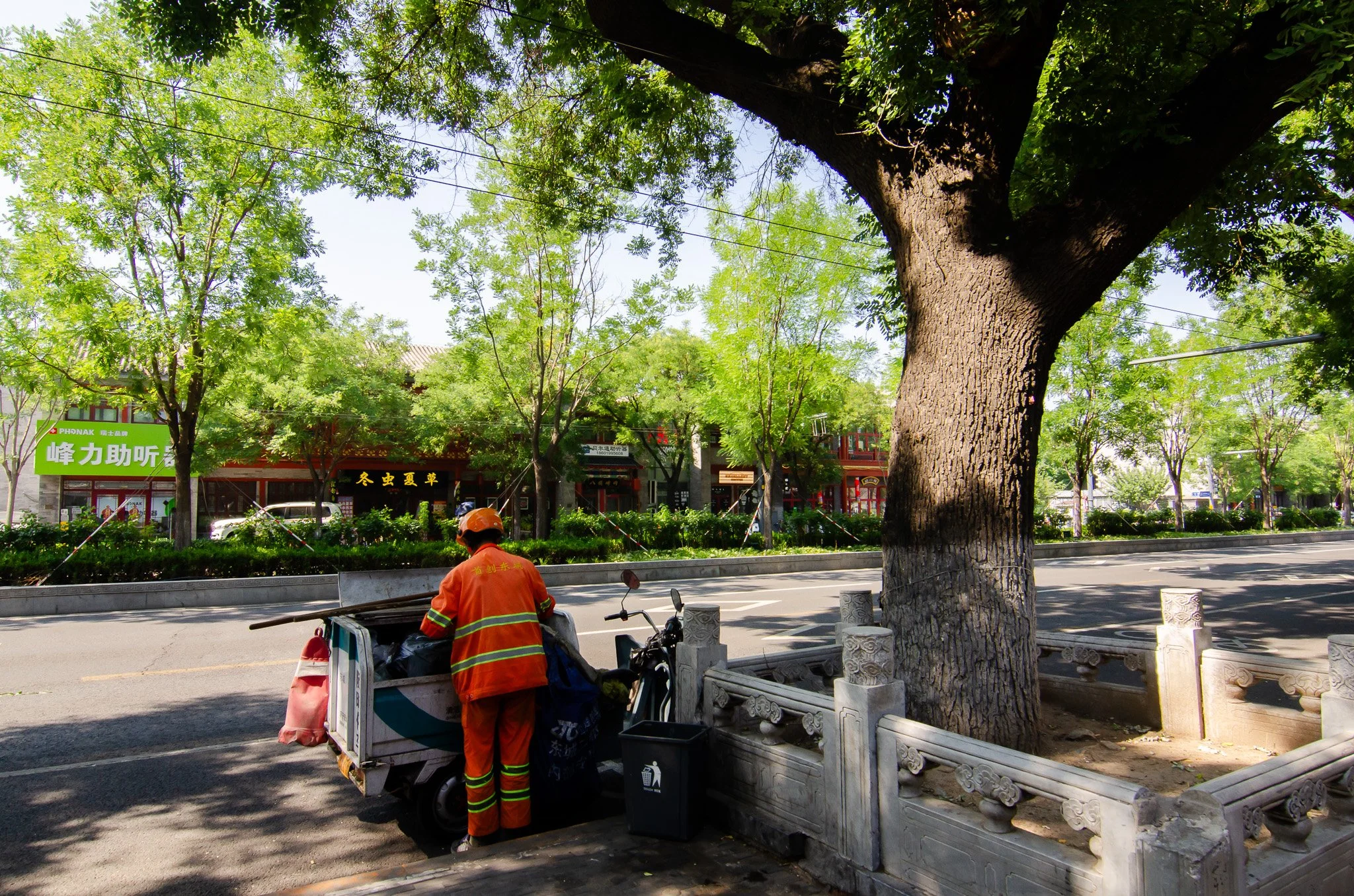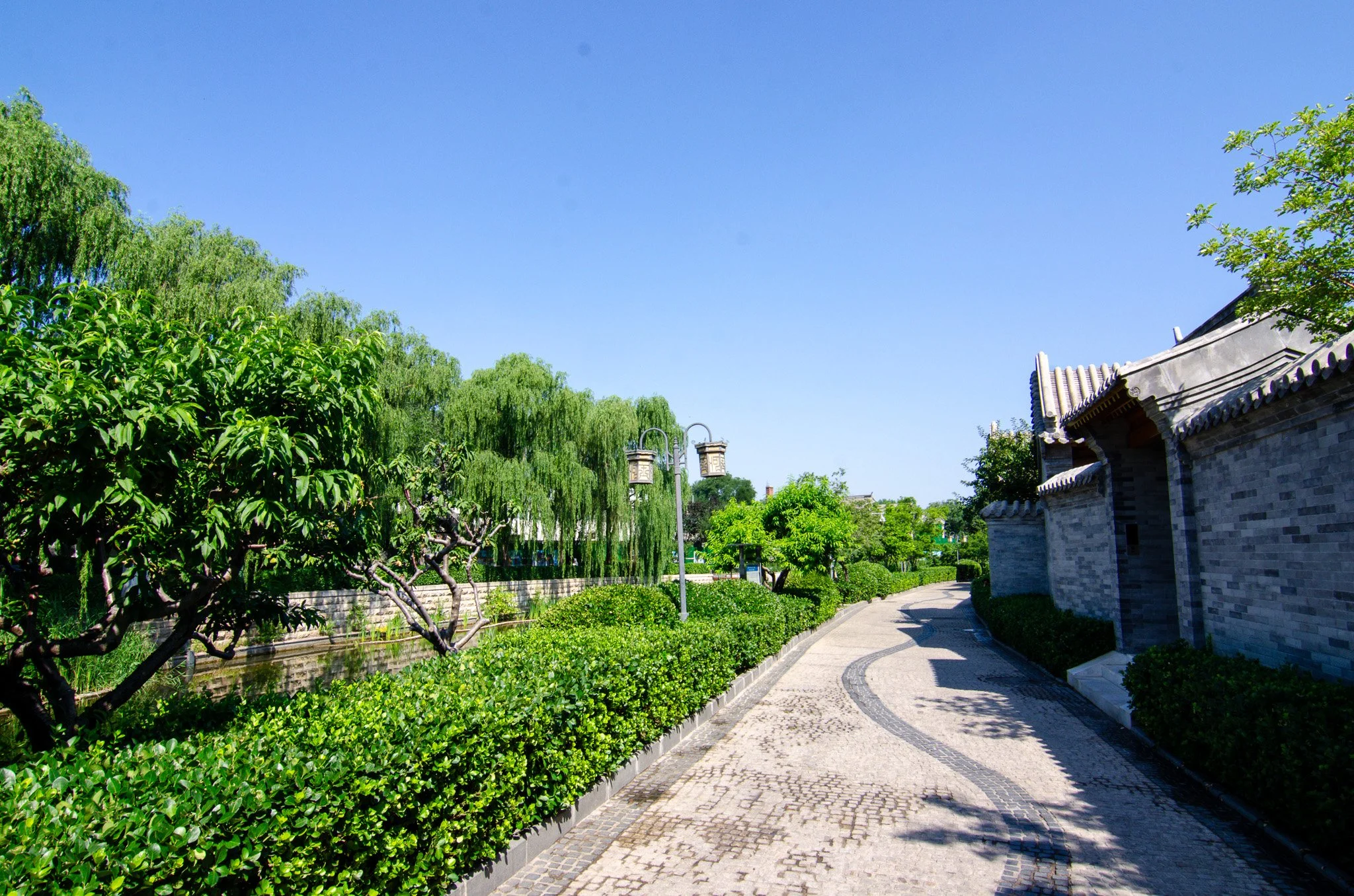China Trips - Chapter 7 - Hutongs
The next morning, we let ourselves take it slow. After the frantic energy of our arrival, it felt like a luxury to have nowhere urgent to be. Our train to Jinan wouldn’t depart until 2 p.m., which, on paper, seemed like plenty of time.
But the lessons of the past day were fresh in my mind. Here, nothing seemed as straightforward as it should be. I’d never taken a train in China before—let alone an interstate one—and there were details I couldn’t ignore.
For one, even in 2024, you still needed a paper ticket. I had the digital confirmation saved on my phone, but I knew that wouldn’t be enough. I’d have to exchange it somewhere in the station for a physical copy. Where exactly? I had no idea. And the thought of arriving late, fumbling with translation apps while the clock ran out, made my stomach tighten.
I did the math carefully, then told my daughter we’d need to leave the hotel no later than 11:30 a.m.—preferably by 11.
That still left us the whole morning. Enough time to explore a little more of Beijing before we said goodbye to the city.
I’d always been curious about the famous hutongs—the old alleys and narrow backstreets that held so much of Beijing’s history. So I asked the concierge to call us a taxi and take us to the nearest hutong district.
We were dropped on a busy, unremarkable street. For a moment, we stood there, unsure which direction to take. I knew that the real hutongs were hidden in the small lanes branching away from the main roads. So at the first chance, we turned off into a quieter alley.
Before the trip, I’d watched videos on YouTube—endless vlogs of travelers wandering through picturesque hutongs with their red lanterns, brick walls, and tiny courtyard houses. But nothing about this street looked familiar. The buildings were a mix of old and new, the signage unrecognizable.
We kept walking, hoping something would click into place. Then, finally, I spotted a café I’d seen in one of those videos, and a wave of relief passed over me. We were in the right place after all.
Our route took us back out onto another main street, this one more inviting than the first. An arching bridge caught my eye—surely there had to be water below. We crossed it and found ourselves looking out over an enormous lake.
The view was beautiful, but there was little time to savor it. Men approached us one after another, offering rides in hand-pulled rickshaws. We declined politely at first, then firmly. After the fourth or fifth attempt, they seemed to understand we wouldn’t change our minds, and finally left us alone.
We stood by the water for a few quiet minutes, watching the breeze ripple across the surface. Then we carried on, following the path into a street lined with shops.
Inside the China Old Post Office, we browsed displays of stamps, postcards, and old-fashioned souvenirs. Everything felt steeped in nostalgia. Next door, we stepped into a shop selling hand creams. I picked up a few tubes for gifts—small comforts to bring back home, tangible proof that we’d been here.
By then, the clock was ticking louder in my head. I looked at my daughter.
“We should start heading back,” I said, trying to keep my voice calm. “I’d feel better if we were at the hotel an hour early.”
She agreed without hesitation. We retraced our steps, winding through alleys and across the bridge, until we reached the main street again.
That was when it happened—the moment when all the little stresses of the trip, all the tiny hurdles I’d been stepping over, gathered into something that felt too big to carry.
I’d felt so confident up to that point. Confident that I could rely on the internet, on my apps, on all the careful planning I’d done. I’d tested Alipay here and there, and every time, it had worked. I suppose that’s why it never occurred to me to wonder what would happen if, at the very moment I needed it most, it didn’t.
Out on the main street, I pulled out my phone and tapped open Alipay, then Didi. The screen blinked to life, and I waited for it to locate us. But it just hung there, frozen in that endless searching mode.
I felt a flicker of unease, but not yet panic. Maybe it was only a slow connection. I turned to my daughter and asked her to try hers.
While she was still in Japan, I’d given her the VPN login and asked her to install it before she landed in China. I knew that once you were inside the firewall, it was almost impossible to set up from scratch.
She pulled out her phone and opened Didi too. Nothing. Her eSIM couldn’t connect at all.
We looked at each other, confused. Still, I told myself, there were taxis everywhere. Surely we’d just hail one the old-fashioned way.
We started walking, scanning the curb for a clear spot. The minutes slipped away. I kept reassuring myself: any moment now, a taxi would stop, and this would be over.
Plenty of taxis did drive past—one after another—but none slowed when we waved. I lifted my arm higher, more insistent, feeling each failure scrape at my nerves. Beside us, Didi cars came and went, dropping off passengers like some quiet taunt. I kept thinking—if my app were working, this would be resolved in seconds.
I tried Alipay again. Still nothing.
We walked further, hoping an open stretch of road would make it easier. But each passing minute ate deeper into the careful buffer I’d planned.
My composure began to fracture. I kept seeing it: the train station we wouldn’t reach in time, the tickets left unclaimed, the departure board flipping over to show our train pulling away without us. All the planning, all the small victories of the past day, unraveling in an instant.
A few taxis stopped nearby to drop passengers off, and each time, we rushed forward with a fragile spark of hope—only to watch the drivers shake their heads and pull away again. Taken. Booked. Unavailable.
Frustration hardened into panic. It was nearly eleven. By now, we should have been back at the hotel, bags collected, ready to leave for the station. The pavement radiated heat, and the sun pressed down on us as if it meant to crush every scrap of resolve I still had.
We kept walking, and then—suddenly—the massive wall of the Forbidden City rose before us, crowds of tourists spilling across the plaza. For a moment, I thought maybe we were close enough to walk. But when I checked Google Maps, the reality was clear: there was no way. Not in this heat. Not carrying everything. Not without losing precious time we no longer had.
Standing there on the pavement, my throat tightened. My eyes burned. I was so close to giving up—to letting it all unravel, right there on a Beijing street.
It was such a small thing, really—a delay, a confusion, a moment of not knowing how to fix it. But in that instant, it was enough to nearly break me.
I closed my eyes. Took a breath. Then another. And in that small, quiet space that opened up inside me, I whispered a prayer. A plea. Just one small miracle. Please.
And almost without thinking, as if something were guiding my hand, I reached for my phone one last time. I opened Didi.
The screen blinked. Loaded. And then—like a gift—I saw our location pin, perfectly fixed on the map.
I stared, hardly daring to believe it. I checked the street signs, the app, the map again, making sure it wasn’t some cruel trick. Everything matched.
Heart hammering, I typed in our hotel, selected the ride the app recommended. I didn’t care how much it would cost—I just wanted to know a car was coming. My finger hovered over the screen, terrified it would disappear again. But this time, it stayed.
The app gave me an arrival time. A driver’s name. A license plate.
I still can’t quite explain what I felt in that moment—relief so profound it made my knees weak, gratitude so sharp it felt like disbelief.
It was one of those rare, inexplicable moments when you feel certain someone, somewhere, has heard you.
And in that space between fear and relief, I believed—just for a moment—that a small miracle really had arrived.
Looking back now, I know I shouldn’t have panicked.
But in that moment, panic was the only thing I could feel. My mind had latched onto a single, unshakable thought: that missing the train would ruin everything. That we’d be stranded in Beijing, our plans unraveling by the hour. That my daughter, who was due back at work the very next day in Jinan, would be caught in the fallout of my failure to get us there.
I kept replaying it in my head—her luggage waiting by the hotel door, the tickets uncollected at the station, the departure board clicking over to the time we were meant to be gone.
It felt catastrophic.
Only later, when the adrenaline had drained away and I was back home sifting through memories, did I see it differently.
If we’d missed that train, it wouldn’t have been the end of the world. There were so many others—trains running almost every hour from Beijing to Jinan, deep into the night. Tickets could be bought on the spot, a seat found on the next departure.
I remembered this lesson well, and the next year when I returned to China, it came in handy. I knew then what I hadn’t known the first time: that missing a train was not the end of a carefully planned itinerary.
It would have just been a detour—one you could always find your way back from.



















